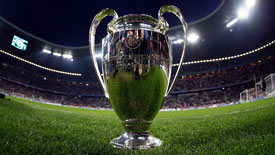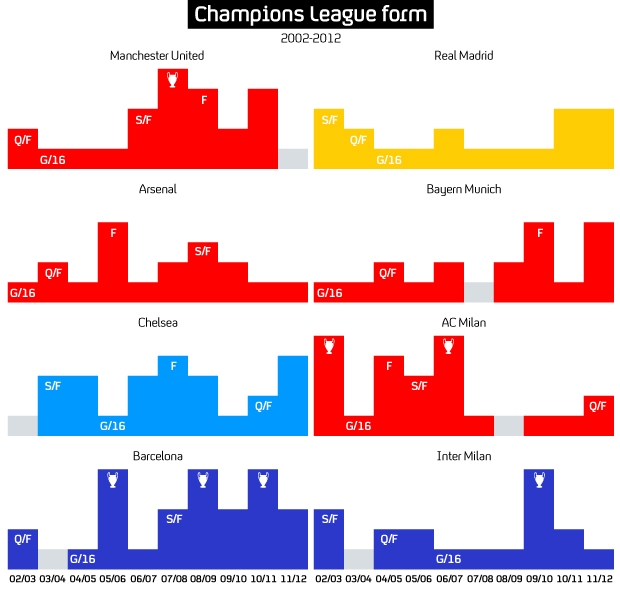Can Chelsea beat Bayern to club football’s top prize?
Not until the dying minutes of their dramatic victory over Barcelona would you have bet on Chelsea appearing in this year’s Champions League final. Yet they face Bayern Munich in Germany tonight.

This was meant to have been a season of rebuilding for Chelsea. The expectation was that new Portuguese manager Andre Villas-Boas would secure Champions League qualification while at the same time initiating a process of renewal within the club.
Stalwarts like Frank Lampard, Ashley Cole, Didier Drogba and Michael Essien – at the core of Chelsea’s all-conquering side under Jose Mourinho – would no longer be guaranteed automatic selection as a new generation of younger players was blooded.
It did not work out like that, though. As Chelsea’s early-season form dropped off, AVB is said to have lost a section of the dressing room. With the club in fifth position in the Premier League, he left in early March 2012 and was replaced by former Chelsea midfielder Roberto Di Matteo.
The Italian could not save Chelsea’s league season, but he did manage the spectacular feat of guiding the club to the last four of the Champions League, where they achieved a remarkable two-leg victory over Spanish giants Barcelona – considered by many, in their present incarnation, to be the best club side ever.
European football elite
The view ahead of this Saturday’s final is, as it was before the semi-final, that Chelsea’s expensively assembled but ageing side will succumb to the fluid dynamism of “FC Hollywood”.
Although the west London side’s performances in the Champions League since 2005 have been better than those of Bayern Munich (see graphic below), the Germans belong to an elite of clubs who have performed and achieved consistently at the highest level in Europe over the decades.
Bayern have won the European Cup four times, most recently in 2001. They have been league champions in their country 22 times, compared to Chelsea’s four. The latest Deloitte money league places them in fourth position in the world, behind Real Madrid, Barcelona and Manchester United.
Even Bayern’s administrative hierarchy appears to vaunt its – and German football’s – proud heritage. 1974 World Cup winner Uli Hoeness is club president. Karl-Heinz Rumenigge chairs the company that runs the club. The greatest German footballer ever, Franz Beckenbauer, was Bayern president until 2009.

World-class players
Anyone who witnessed the Germans’ semi-final second leg against Real Madrid saw two clubs playing at the very highest level, with skill and imagination and at speed.
In Mario Gomez, Bayern have a world-class striker. In Frank Ribery and Arjen Robben (or “Robbery”, as some have dubbed the pair), they have two creative individualists who would walk into most sides. And last season several top clubs across Europe were coveting Manuel Neuer, then keeper with FC Schalke, before he committed to Bayern.
But Bayern, like Chelsea, have tasted defeat recently in a Champions League final. Where the English club succumbed to Manchester United in 2008, the Germans failed at the last hurdle against Jose Mourinho’s Internazionale in 2010.
Whatever happens at the Allianz Arena (Bayern’s home ground) on 19 March, some will say it is Spain, not England or Germany, which possesses one, or both, of Europe’s finest club sides. Many predicted that this year’s final would be contested between Barcelona and Real Madrid.
But football does not work like that. It is a funny game. As Alex Ferguson once put it: “Footballâ?¦ Bloody hell!” The occasion that prompted the remark was Manchester United’s last-gasp victory in the Champions League final in 1999. The defeated team? Bayern Munich.